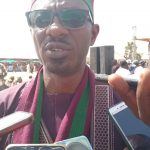Insecurity in Northern Nigeria: The Political Playbook of Despair.
Insecurity in Northern Nigeria has spiraled into a multifaceted and deadly challenge, seemingly turning into a calculated instrument in the hands of political actors. Recent events paint gory pictures of despair, sorrow, and bloodshed, reinforcing long-standing suspicions about conspiracy and intrigue surrounding the region’s insecurity. Many believe the issues run deeper than mere coincidence, touching on state-sponsored violence and the heinous activities of non-state actors. This article reflects on three critical events that underscore the gravity of the situation and explores the complex layers of insecurity now ingrained in the region.
The Killing of Sarkin Gobir
The cold-blooded murder of Sarkin Gobir, a revered traditional ruler, stands as one of the stark reminders of how insecurity is intricately woven into the political fabric of Northern Nigeria. His killing not only symbolizes the deep-rooted breakdown of security structures but also demonstrates how such tragedies fuel fears of a political undercurrent at play. His death leaves a vacuum in leadership that not only affects local governance but also adds another chapter to the region’s tragic narrative of insecurity and power struggles.
The Yobe Massacre: ISWAP’s Reign of Terror
In another chilling event, approximately one hundred innocent farmers were brutally murdered in Yobe State by the Islamic State’s West Africa Province (ISWAP). This heinous crime adds to the long list of terror inflicted by extremist groups in the region. These attacks on ordinary citizens underscore the relentless and expanding reach of insurgent activities. The massacre also emphasizes how the very act of farming, a crucial livelihood for many, is under constant threat from terror groups who view civilians as expendable pawns in their larger ideological wars. The lack of immediate action and response from security agencies raises troubling questions about complicity, negligence, and the failure of governance.
Kidnappings Around Sabon Birni
The abduction of innocent civilians around Sabon Birni, a recurrent theme in northern Nigeria, further exemplifies the weaponization of insecurity. Kidnap-for-ransom has become an insidious yet lucrative enterprise, fueling organized crime networks. These abductions have created a sense of fear and helplessness, leaving communities vulnerable. What was once considered an isolated problem has now expanded into a web of coordinated attacks that seemingly operate with impunity.
Education Under Siege: Out-of-School Children and Banditry
Northern Nigeria’s insecurity is perhaps most tragically illustrated by its impact on education. With about 15 million children out of school in the region, the educational system has become a major casualty of these conflicts. Bandits, in their ruthless pursuit of ransom, have increasingly targeted schools, with mass kidnappings of students becoming alarmingly common. The abduction of schoolchildren has turned classrooms into battlegrounds, leaving parents and students in a state of perpetual fear.
Multiple Actors, Divergent Interests
The layers of insecurity in Northern Nigeria are multi-dimensional and complex, with various actors driven by divergent interests. Bandits, insurgents, political opportunists, and even rogue elements within state security apparatuses each have their own motives. While some are fueled by ideological fanaticism, others exploit the situation for financial gain or political leverage. In some quarters, the argument is gaining ground that certain elements within the state apparatus may be benefiting from the chaos, giving credence to long-held suspicions of state-sponsored insecurity.
A Call for Collective Action
The situation in Northern Nigeria has reached a tipping point. As the death toll rises, the nation must confront not only the brutality of non-state actors like ISWAP and bandits but also the political dimension of the crisis. To restore peace and security, there must be a concerted effort to hold all actors accountable—state and non-state alike. The political leadership must prioritize the welfare of its citizens, and security agencies must be reformed and strengthened to address these challenges with greater resolve.
The human cost of this insecurity is far too great to be dismissed as a mere consequence of power struggles. It is time for a collective national response to this crisis that prioritizes human lives over political gain.
Writer:- Bala Salihu Dawakin kudu, Democracy online media
08060017934. Email:- balasalihudawakinkudu@gmail.com












